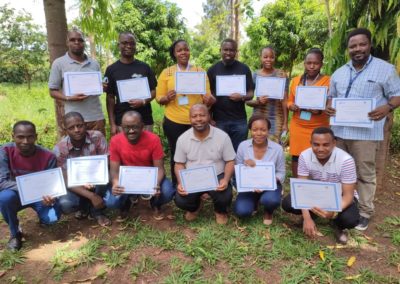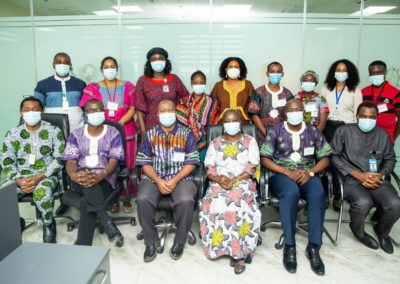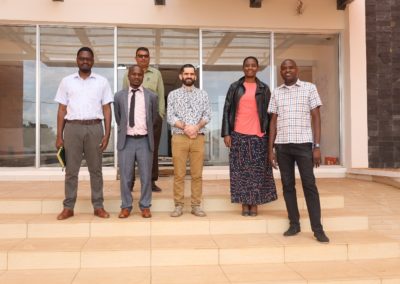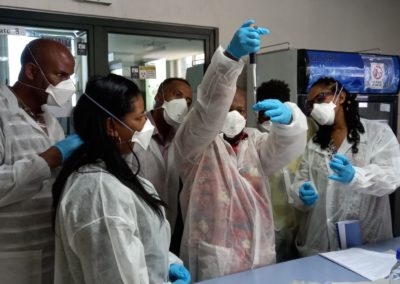World TB Day 2022
World TB Day held on March 24th each year is designated to raise awareness about the global pandemic of the disease and to remember those who have lost their lives in the battle with tuberculosis (TB). TB is one of the most ancient infectious diseases that still claims millions of lives every year.
There are key areas of TB research where improvement could make a significant impact on TB management and where the St Andrews TB team has proven to play an important role.
Clinical trials
The St Andrews TB research team has continuously been working towards the vision of a world free of TB by delivering cutting-edge science and supporting the development of novel TB therapies. Last year the team continued to provide scientific leadership in the ongoing TB Alliance sponsored, SimpliciTB. Working with our partners, including EDCTP funding for sites in Africa, this project applies a multi-layered strategy to combat TB. We focus on the gaps in research capacity to run clinical trials in places where TB is the most prevalent, developing laboratory infrastructure, and engaging local communities to erase stigma and improve understanding of the disease. Recruitment to the main SimpliciTB trial is complete and this year a new pragmatic trial OptRiMoxTB will be launched. This will investigate the effectiveness of optimised doses of rifampicin alongside moxifloxacin and other companion drugs to shorten TB therapy.
Better diagnostics
A strong international scientific community is necessary to achieve our goals, therefore the St Andrews team remains determined to build partnerships with world leading institutions, scientists and clinical teams, especially in low- and middle- income countries. Supporting the laboratory infrastructure in heavily affected areas worldwide will make the response to TB faster and more efficient. To fulfil this aim, the St Andrews team has delivered training in Nigeria, Ethiopia, South Africa, Tanzania and Kenya. These activities focused on the successful implementation of the novel Tuberculosis-Molecular Bacterial Load Assay (TB-MBLA) in future clinical trials. This initiative is part of the CAPRISA led study, TRiAD (Triage Test for All Oral DR-TB drugs) launched in March 2022. Remote training using innovative media tools developed throughout the year has also been ongoing. The online training is open-access and can be used for self-practice and training purposes.
Novel technologies
Novel technological solutions are being sought to address the global burden of TB as well. The St Andrews team have been working on an established St Andrews invention- the Scattered Light Integrating Collector– and adapting it for use with mycobacteria. PhD student Joanna Rivas has made great progress, creating new media formulations & investigating mutation-derived fitness deficits. In addition, we have analysed the first full genome of a mycobacterial species we plan to use as a future surrogate organism for MTB; M. komossense. We hope to transfer all of this work to MTB in the near future.
Working with collaborator we are also plumbing the depths of what is possible with classic light and fluorescent microscope technology. We are interested in the lipid bodies of mycobacteria; these indicate the bacteria is in a ‘dormant’ state. When in this state the bacilli are harder to kill with antibiotics and are likely to cause a patient to relapse after apparently successful treatment. Using novel lensing technology we are discovering more about these lipid inclusion vesicles and what role they play in human illness.
Global partnership
After nearly two years of travel restrictions members of the St Andrews TB team have recently been able to resume travel, visiting Tanzania to discuss of future clinical trial protocols with colleagues from the Kibongo’to Infectious Diseases Hospital (KIDH).




